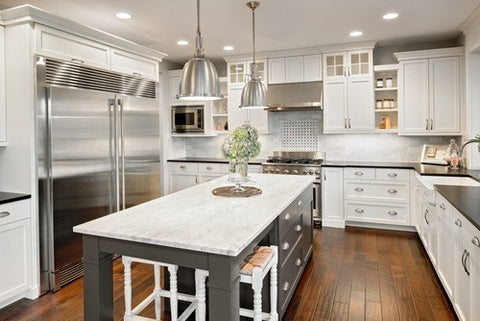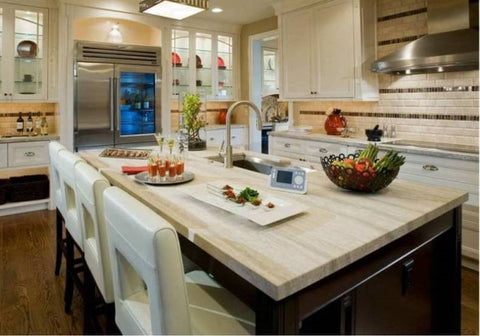When you design your kitchen space you want it to look absolutely perfect. This means choosing the right natural stone for your look and feel and your needs. In order to pick the right stone, you have to get to know granite, marble, and travertine a little better.
Granite, marble, and travertine are all beautiful, highly sought-after surfacing materials and each have their own benefits. From being heat resistant and durability to simply having unmatched beauty.
Weighing up the pros and cons before deciding on one or the other for your surfacing project is important. So, what exactly is the difference?
Below is table to help you with the comparisons to make the right choice for you.
| STONE TYPE | COMPARISON |
GRANITE |
Granite is a durable, long-lasting stone that is aesthetically pleasing and comes in a wide array of colours and patterns, making it completely customizable for any space. Generally is it more resistant to stains and scratching so very ideal for your kitchen countertop. PROS
CONS
|
MARBLE |
Marble has a smooth base and deep veining. Marble looks crisp, elegant, clean, and timeless. It has a luxurious appearance that makes it highly appealing to designers. Marble countertops are considered to be high-maintenance in comparison to other natural stones. It is a porous stone which means it is more susceptible to stains and etching and therefore must be sealed regularly to retain its appearance. PROS
CONS
|
TRAVERTINE |
Travertine stone looks majestic, rustic, or classic. This stone gives a sense of prestige to any home in inhabits. Travertine is a porous stone (even more porous than marble), which means you should seal it regularly to ensure it is protected from scratches and water damage. PROS
CONS
|
Con
Alvaro Constantino, Director
EURO ABRASIVES Sydney Hardware & Building Supplies







